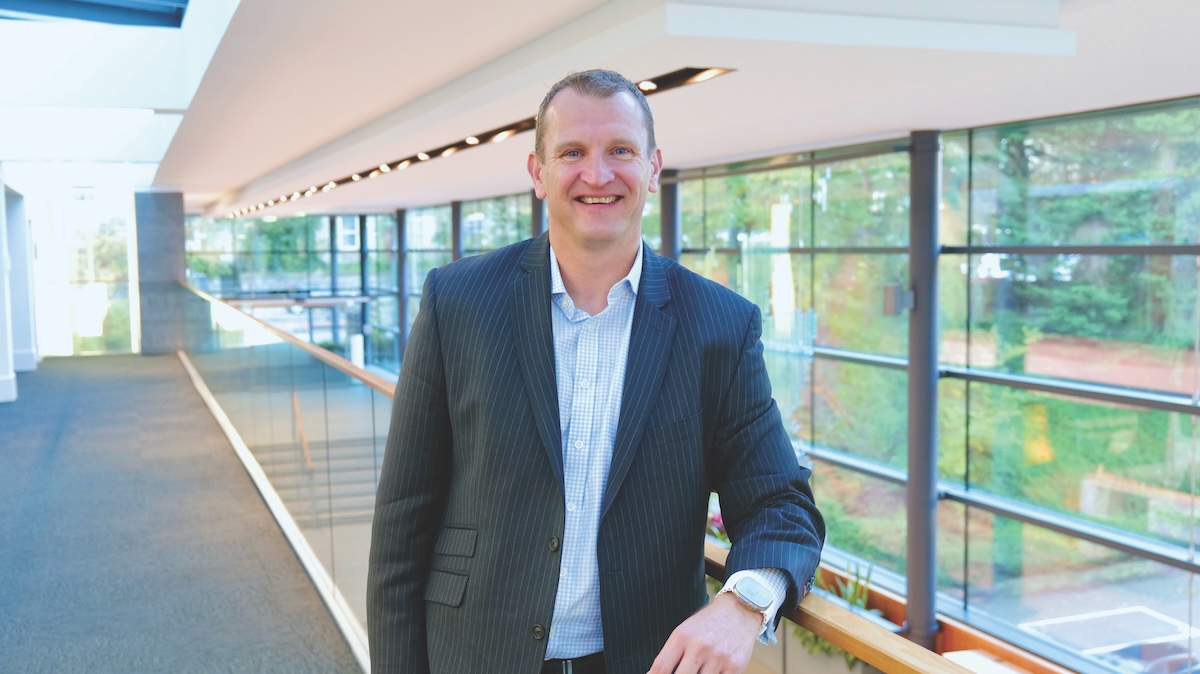“Describe the difference between public and private sector organisations.” Type that into a generative AI app and in less time than it takes to read this sentence, you’ve been presented with a list of adjectives.
Under “private sector”, the AI software includes: dynamic, innovative, agile, and performance-orientated. By contrast, for “public sector” it lists: traditional, bureaucratic, stable, as well and feelgood terms such as inclusive and community focussed.
Anyone who has explored AI will have experienced that weird mix of admiration at its ability to produce content at quicksilver speed, with disappointment that our digital assistants are often, ironically, out of touch and not so intelligent.
Registers of Scotland (RoS) is the public body responsible for managing Scotland’s land and property records. You would hope an organisation that brings state-backed certainty to anyone buying and selling property was accurate, trustworthy, transparent, secure – and it is all of those things.
However, behind the scenes, it’s also a forward-thinking organisation fostering an innovative, diverse and inclusive work environment. Martin Burns, joined RoS last year after a 25-year executive career in blue chip organisations such as Ernst & Young and Tesco Bank. He now leads the RoS digital, data and technology directorate.
Burns was initially drawn by the breadth of the role. He soon found a vibrant, supportive culture that he believes is ideal for ambitious people looking to develop their digital skillset. Burns’s time with RoS has challenged his preconceptions about the public sector. He expected the organisation might be behind the curve compared to some of his previous employers. He quickly discovered that RoS is anything but.
“One of the surprises for me was the scale and agility of the organisation. We’re able to deploy up to 25 changes a day, and we’re using very modern capabilities like Amazon Cloud services and investigating the potential benefits of AI,” Burns says.
This level of technological investment and culture of innovation overturns the clichéd view of public sector organisations.
RoS’s commitment to staying at the forefront of digital technology is evident in its use of in-house coding and development, as well as modern product teams. The organisation manages its own technology from end-to-end, allowing it to be nimble and responsive to changing needs. For Burns and his colleagues, this dynamic environment creates an exciting workplace where there’s always something new to learn.
RoS has working arrangements and tools that support a flexible work-life balance. Moreover, the organisation’s people-centric approach is one of the most positive aspects of working there.
“The induction and training process has been genuinely the best I’ve ever experienced,” Burns notes, emphasising the importance RoS places on ensuring employees feel included from day one, helping to build team cohesion.
Burns highlights how accessible the executive management team is, including Jennifer Henderson, Keeper of the Registers of Scotland, who actively engages with colleagues across the business and helps create a workplace where everybody is valued.
The current focus on public finances means organisations like RoS face increasing challenges to make smart investment decisions. The revenue it allocates to digital development reflects the need to build resilience and capability.
For example, automation will enable RoS to deliver a consistent service even during future housing booms. RoS’s investment in its digital infrastructure, cyber-resilience, accessible data, product development, and people are about more than ensuring it remains modern – they bring tangible benefits that improve efficiency, customer experience, and support the government’s public service reform ambitions.
What ultimately makes RoS an excellent place to work is the sense of purpose that drives the organisation. Employees are part of something bigger, contributing to Scotland’s economic infrastructure. This purpose, combined with a strong digital culture and commitment to personal and professional growth, makes RoS a rewarding place to build a career.
As Burns says: “There’s a lot to do, and the job is far from finished. But that’s what makes it exciting. I’m constantly learning, and I feel like I’m genuinely making a difference.”
To find out more about working at Registers of Scotland please visit www.ros.gov.uk/about/work-with-us
Partner Content in association with Registers of Scotland




